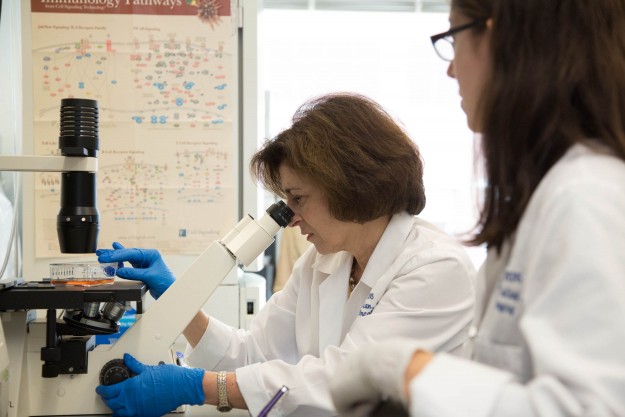Suzanne Topalian, M.D., associate director of the Bloomberg~Kimmel Institute for Cancer Immunotherapy, is a pioneer in the search for biomarkers that predict responses to immunotherapy.
In April at the American Association for Cancer Research meeting in New Orleans, Topalian and her colleagues presented data linking a virus-associated cancer, called Merkel cell carcinoma - to response to one type of anti-PD-1 therapy.
In a new, preliminary study, Topalian takes a closer look at kidney cancer and immunotherapy. The kidneys are metabolic organs -- the filters of the body -- that control how nutrients are absorbed and waste is eliminated.
Up to 30 percent of patients with kidney cancer may respond to immunotherapy drugs that target the PD-1 and PD-L1 pathway, but scientists do not know why the majority of patients don't respond, says Topalian.
In the nine among 13 kidney cancers that did not respond to anti-PD-1 therapies, the expression of 110 genes involved in cell metabolism went into overdrive. One gene, called UGT1A6, had particularly high expression, found the researchers. It controls how some cells in the body get rid of toxins.
With these results, the researchers are asking: could tumors use this pathway to rid themselves of toxins, such as medicines and other chemical substances, thereby making the tumor cells more "fit" to keep up their hide-and-seek game with the immune system?
"This is a retrospective study in a limited number of patients, but we think it's a good start in exploring immunotherapy resistance," says Topalian.
In further research, Topalian and her colleagues will investigate the role of UGT1A6 and other metabolic genes in cancer cells and whether their results can be confirmed in larger groups of patients.
Read more: Topalian discusses advances in immunotherapy and the search for new biomarkers of response.
